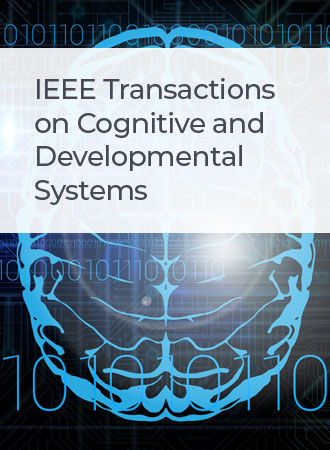Guest Editorial Special Issue on Cognitive Learning of Multiagent Systems
IF 4.9
3区 计算机科学
Q1 COMPUTER SCIENCE, ARTIFICIAL INTELLIGENCE
IEEE Transactions on Cognitive and Developmental Systems
Pub Date : 2024-02-02
DOI:10.1109/TCDS.2023.3325505
引用次数: 0
Abstract
The development and cognition of biological and intelligent individuals shed light on the development of cognitive, autonomous, and evolutionary robotics. Take the collective behavior of birds as an example, each individual effectively communicates information and learns from multiple neighbors, facilitating cooperative decision making among them. These interactions among individuals illuminate the growth and cognition of natural groups throughout the evolutionary process, and they can be effectively modeled as multiagent systems. Multiagent systems have the ability to solve problems that are difficult or impossible for an individual agent or a monolithic system to solve, which also improves the robustness and efficiency through collaborative learning. Multiagent learning is playing an increasingly important role in various fields, such as aerospace systems, intelligent transportation, smart grids, etc. With the environment growing increasingly intricate, characterized by factors, such as high dynamism and incomplete/imperfect observational data, the challenges associated with various tasks are escalating. These challenges encompass issues like information sharing, the definition of learning objectives, and grappling with the curse of dimensionality. Unfortunately, many of the existing methods are struggling to effectively address these multifaceted issues in the realm of cognitive intelligence. Furthermore, the field of cognitive learning in multiagent systems underscores the efficiency of distributed learning, demonstrating the capacity to acquire the skill of learning itself collectively. In light of this, multiagent learning, while holding substantial research significance, confronts a spectrum of learning problems that span from single to multiple agents, simplicity to complexity, low dimensionality to high dimensionality, and one domain to various other domains. Agents autonomously and rapidly make swarm intelligent decisions through cognitive learning overcoming the above challenges, which holds significant importance for the advancement of various practical fields.客座编辑特刊:多代理系统的认知学习
生物和智能个体的发展和认知为认知、自主和进化机器人的发展提供了启示。以鸟类的集体行为为例,每个个体都能有效地沟通信息,并从多个邻居身上学习,从而促进它们之间的合作决策。这些个体间的互动揭示了自然群体在整个进化过程中的成长和认知过程,它们可以被有效地模拟为多代理系统。多代理系统有能力解决单个代理或单体系统难以解决或无法解决的问题,还能通过协作学习提高鲁棒性和效率。多代理学习在航空航天系统、智能交通、智能电网等各个领域发挥着越来越重要的作用。随着环境日益错综复杂,加上高动态性和不完整/不完美观测数据等因素,与各种任务相关的挑战也在不断升级。这些挑战包括信息共享、学习目标的定义以及应对维度诅咒等问题。遗憾的是,在认知智能领域,许多现有方法都难以有效解决这些多方面的问题。此外,多代理系统中的认知学习领域强调了分布式学习的效率,展示了集体学习自身技能的能力。有鉴于此,多代理学习在具有重大研究意义的同时,也面临着从单代理到多代理、从简单到复杂、从低维到高维、从一个领域到其他各种领域的一系列学习问题。代理通过认知学习自主、快速地做出群智能决策,克服了上述挑战,这对推动各实用领域的发展具有重要意义。
本文章由计算机程序翻译,如有差异,请以英文原文为准。
求助全文
约1分钟内获得全文
求助全文
来源期刊

IEEE Transactions on Cognitive and Developmental Systems
Computer Science-Software
CiteScore
7.20
自引率
10.00%
发文量
170
期刊介绍:
The IEEE Transactions on Cognitive and Developmental Systems (TCDS) focuses on advances in the study of development and cognition in natural (humans, animals) and artificial (robots, agents) systems. It welcomes contributions from multiple related disciplines including cognitive systems, cognitive robotics, developmental and epigenetic robotics, autonomous and evolutionary robotics, social structures, multi-agent and artificial life systems, computational neuroscience, and developmental psychology. Articles on theoretical, computational, application-oriented, and experimental studies as well as reviews in these areas are considered.
 求助内容:
求助内容: 应助结果提醒方式:
应助结果提醒方式:


